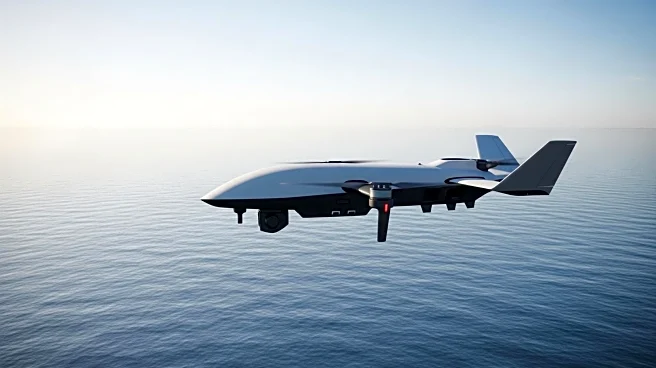What is the story about?
What's Happening?
Sweden is set to enhance its maritime security measures in the Baltic Sea by proposing legislation to expand the coast guard's surveillance capabilities. This move comes in response to increased security threats in the region, including undersea cable and gas pipeline outages, as well as recent drone sightings and airspace violations. The Swedish Minister for Civil Defence, Carl-Oskar Bohlin, emphasized the need to address these challenges, stating that Sweden must adapt to the current external situation. NATO has also announced upgrades to its Baltic Sea mission, deploying an air-defense frigate and other assets following drone incursions in Denmark.
Why It's Important?
The Baltic Sea is a critical area for international trade and energy transportation, making its security vital for regional stability. Sweden's decision to bolster its coast guard surveillance reflects growing concerns over potential threats from Russia, especially after its 2022 invasion of Ukraine. Enhanced security measures could deter further incursions and protect vital infrastructure, ensuring the safety of maritime activities. This development is significant for U.S. interests, as it aligns with NATO's broader strategy to secure European borders and maintain geopolitical stability.
What's Next?
Sweden's legislative proposal is expected to undergo parliamentary review, with potential implications for regional security policies. NATO's increased presence in the Baltic Sea may prompt further military collaborations among member states, potentially leading to joint exercises or strategic deployments. Stakeholders, including neighboring countries and international maritime organizations, will likely monitor these developments closely, assessing their impact on regional security dynamics.
Beyond the Headlines
The expansion of surveillance capabilities in the Baltic Sea raises questions about the balance between security and privacy. As countries enhance their monitoring systems, there may be concerns regarding the potential for overreach and the impact on civil liberties. Additionally, the increased military presence could escalate tensions with Russia, necessitating diplomatic efforts to manage relations and prevent conflict.















